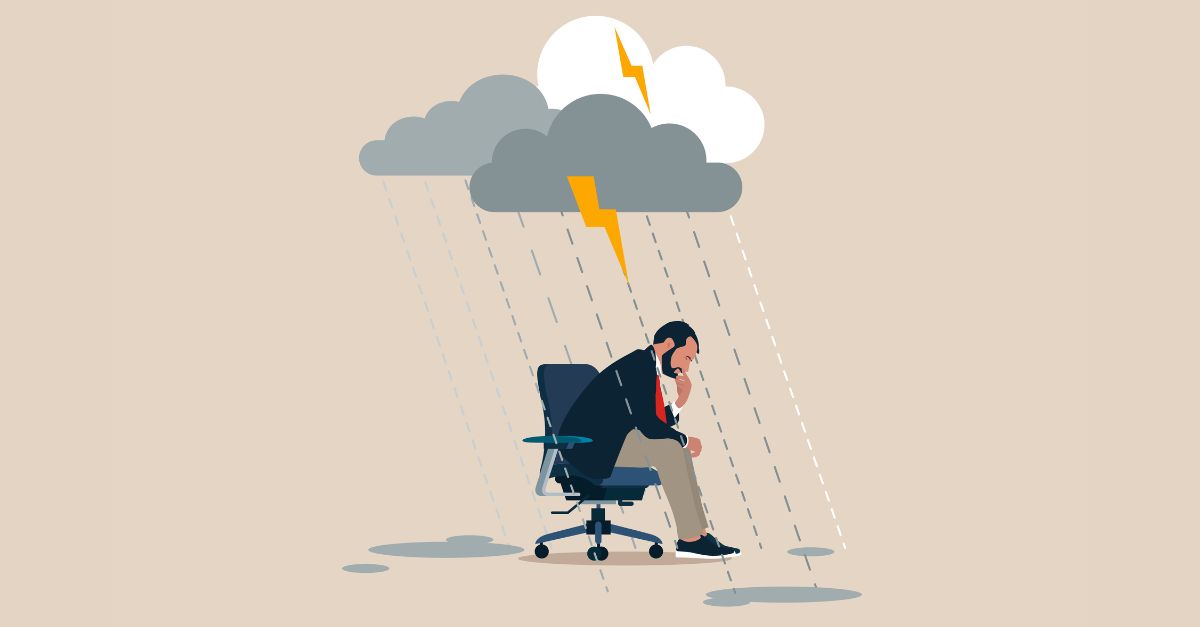A recent survey from ACCA has revealed that only 14% of accountants have a positive view of the economy. In addition to this, ACCA's Global Economic Conditions Survey (GECS) revealed that UK SME business confidence fell in the last quarter, to its lowest level since Q2 2023. A stark contrast perhaps to the improving economic data so far in 2024, and arguably this could reflect concerns about government policy and tax implications.
Speaking on the fall in business confidence, Glenn Collins, Head of Technical and Strategic Engagement, ACCA UK, said:
"The Chancellor has rightly warned about the tough decisions ahead, but the Government should be concerned about the impact this is having on economic confidence. Despite an improvement in the capital expenditure index in the GECS survey, it remains low compared to its historic average."
Are accountants right to feel negative about the economy? Perhaps it's worth exploring some of the key reasons why the majority of accountants might tend to have a more negative outlook on the economy.
1. Ongoing Exposure to Financial Vulnerabilities
We are often the first to notice red flags---decreasing profit margins, increasing debt, cash flow problems, and more. Our exposure to the financial difficulties faced by our clients and colleagues means we often have a close view of underlying issues in the economy that others might overlook.
2. Historical Patterns and Cautionary Tales
As accountants, we are able to look at, and understand, historical data and trends. we are trained to recognise patterns, and in the world of economics, these patterns are often cyclical, leading to the belief that "what goes up must come down." We're aware of how quickly economic growth can reverse.
Many of us witnessed the impact of the 2008 financial crisis, where optimistic investment strategies and lax regulations led to widespread financial instability. Events like this leave a lasting impression and perhaps lead us to take a cautionary approach.
3. Understanding of Debt and Leverage
Debt is a major factor that we closely monitor. From student loans and mortgages to corporate debt, we understand debt-driven growth. High public and private debt levels are a concern that often leads to pessimism. With mounting government debt, many of us worry that debt-servicing costs will eat into future growth, limiting the ability of the government to respond to economic downturns. This understanding of how unsustainable debt levels can lead to economic problems underpins much of our cautious perspective.
4. Seeing Economic Risks Up Close
Unlike economists or policy analysts, who may deal in generalities, we often see the coal face of economic distress. We work with real people who experience the effects of inflation, layoffs, and changing tax policies on a personal level. We are often the first to hear about job cuts, tax issues, or financial hardship. This gives us a very real understanding of economic risks and the impact of financial instability.
5. Proximity to Regulatory Changes and Tax Policy
Accountants are highly attuned to tax and regulatory changes, which can have immediate impacts on the economy and businesses. New taxes, changes in interest rates, or shifts in monetary policy can all affect how individuals and companies manage their finances. We are often quick to pick up on the ways that such policies might strain or benefit our clients and the businesses we work for, and we are frequently wary of policies we believe could harm economic growth or stability.
So that all sounds pretty pessimistic doesn't it? But perhaps it's more accurate to say we are realists with a conservative approach to financial risk. Our work with financial data, debt management, and economic policy gives us a unique lens through which we view the economy, one that's grounded in the often harsh realities of financial risks and constraints.
Our "negative" outlook is not necessarily about predicting doom but about preparing for the unexpected and avoiding the pitfalls of excessive risk-taking. At the end of the day, accountants' cautious views help balance the economy's optimism, providing a healthy dose of realism that can serve both businesses and individuals well.
Learn more about how the economy works with our 4-hour course, Economics Every Accountant Should Know!

You need to sign in or register before you can add a contribution.